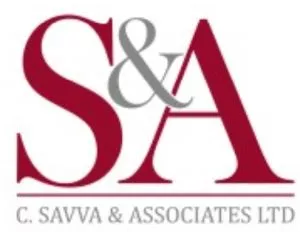- with readers working within the Media & Information industries
- within Technology topic(s)
- with Senior Company Executives, HR and Finance and Tax Executives
In an increasingly interconnected global economy, businesses and individuals engage in complex cross-border financial activities that often require a clear understanding of international tax regulations. This interconnectedness, while providing opportunities for growth and diversification, also presents significant challenges, particularly when it comes to tax compliance. Cross-border tax investigations are becoming more common as tax authorities worldwide collaborate to ensure compliance with national and international tax laws. In this article, we will explore what to expect from a cross-border tax investigation, the key challenges involved, and how Savva & Associates can assist clients in navigating these complexities with our team of seasoned tax professionals.
Understanding Cross-Border Tax Investigations
Cross-border tax investigations typically involve a thorough examination of an individual's or a company's international transactions to determine if they comply with the tax laws of the jurisdictions involved. These investigations are often triggered by irregularities in tax filings, discrepancies in reported income, or suspicions of tax avoidance through mechanisms such as transfer pricing or offshore accounts.
With increasing cooperation between countries, tax authorities have access to a wide range of information through various international agreements, including:
- Double Tax Treaties (DTTs): - Agreements between countries designed to avoid double taxation and prevent tax evasion.
- Automatic Exchange of Information (AEOI): - A global framework facilitating the automatic exchange of tax-related information between countries.
- Common Reporting Standard (CRS): - A framework developed by the Organisation for Economic Co-operation and Development (OECD) for the automatic exchange of financial account information between participating countries.
Given these mechanisms, tax authorities have the ability to access a wealth of data on cross-border transactions, making it more important than ever for businesses and individuals to ensure they are in full compliance with international tax regulations.
Key Areas of Focus in a Cross-Border Tax Investigation
- Transfer Pricing:
Transfer pricing refers to the pricing of goods, services, or intellectual property exchanged between related parties across borders. Tax authorities closely scrutinize transfer pricing arrangements to ensure that they are at arm's length and do not artificially shift profits to low-tax jurisdictions. In cross-border tax investigations, tax authorities will review transfer pricing policies to ensure compliance with the OECD's Transfer Pricing Guidelines and local regulations.
- Permanent Establishment (PE):
Permanent establishment refers to a fixed place of business through which a company conducts significant operations in a foreign country. Whether or not a business has a PE in another jurisdiction can have major tax implications. Tax authorities may investigate whether a company has a permanent establishment in a particular jurisdiction, which would subject it to local tax laws.
- Use of Offshore Structures:
The use of offshore companies and tax havens has long been a focus of tax authorities. While the use of offshore structures is not illegal, it can attract scrutiny if it appears to be used solely for the purpose of avoiding taxes. Tax investigations may focus on the economic substance of offshore structures to determine if they are genuine business operations or merely vehicles for tax avoidance.
- Double Taxation Relief:
Double taxation occurs when the same income is taxed by two or more countries. Double tax treaties (DTTs) exist to mitigate this issue. However, tax authorities may scrutinize claims for double taxation relief to ensure that they are legitimate and in accordance with the provisions of the applicable treaties.
Challenges in Cross-Border Tax Investigations
Cross-border tax investigations present unique challenges due to the involvement of multiple jurisdictions, each with its own tax laws, regulations, and enforcement practices. The key challenges include:
- Differing Interpretations of Tax Laws: - Different jurisdictions may interpret international tax laws, including DTTs and transfer pricing rules, in varying ways. This can lead to conflicts and double taxation if not properly addressed.
- Data Sharing and Transparency: - With the adoption of global frameworks such as the CRS and AEOI, tax authorities have access to more information than ever before. While this increases transparency, it also means that even minor discrepancies in tax filings can trigger investigations.
- Complexity of Tax Treaties: - Navigating the provisions of DTTs and understanding how they interact with domestic tax laws requires specialized knowledge. Tax authorities may challenge claims made under DTTs, requiring detailed justifications from taxpayers.
- Lengthy Investigations: - Cross-border tax investigations can be lengthy and resource-intensive, involving significant documentation and legal support. Taxpayers need to be prepared for the long haul, especially when dealing with multiple tax authorities.
How Savva & Associates Can Help
At Savva & Associates, we understand the complexities involved in cross-border tax investigations. Our team of seasoned tax professionals has extensive experience in navigating the intricacies of international tax laws and regulations. Here's how we can assist:
- Transfer Pricing Compliance:
Our team can help clients develop and implement robust transfer pricing policies that comply with local regulations and the OECD's Transfer Pricing Guidelines. We provide support in preparing the necessary documentation to justify transfer pricing arrangements and mitigate the risk of tax audits.
- Permanent Establishment Risk Assessment:
We conduct thorough assessments to determine whether your business activities in a foreign jurisdiction constitute a permanent establishment. If a PE is identified, we work with you to ensure compliance with the tax obligations in that jurisdiction while minimizing tax liabilities.
- Tax Treaty Interpretation and Application:
Our tax professionals are well-versed in the provisions of Double Tax Treaties and can help clients interpret and apply these treaties to their specific circumstances. We assist in preparing the necessary documentation to support claims for double taxation relief and defend these claims during tax investigations.
- Mitigating Risk through Proper Structuring:
Savva & Associates assists clients in structuring their cross-border operations in a way that minimizes tax risks while remaining fully compliant with international tax laws. We help you design tax-efficient structures that provide legitimate tax savings without raising red flags with tax authorities.
- Resolving Tax Disputes:
In the event of a cross-border tax investigation, our team has the expertise to engage in discussions with tax authorities and resolve disputes in a timely and cost-effective manner. We aim to minimize the impact on your business while ensuring full compliance with international tax regulations.
- Proactive Tax Planning:
The best defense against a cross-border tax investigation is proactive tax planning. Savva & Associates can help you plan your cross-border operations in a way that minimizes tax risks from the outset. By identifying potential issues early on, we can help you avoid costly investigations and penalties.
Conclusion
Cross-border tax investigations are a growing concern for businesses and individuals engaged in international financial transactions. Understanding the key areas of focus, such as transfer pricing, permanent establishment, and the use of offshore structures, is critical to ensuring compliance with tax laws. At Savva & Associates, we are committed to helping our clients navigate these challenges with confidence and expertise. Whether through proactive tax planning, dispute resolution, or compliance support, our team of tax professionals is here to ensure that your cross-border operations are fully compliant with international tax regulations.
The content of this article is intended to provide a general guide to the subject matter. Specialist advice should be sought about your specific circumstances.


